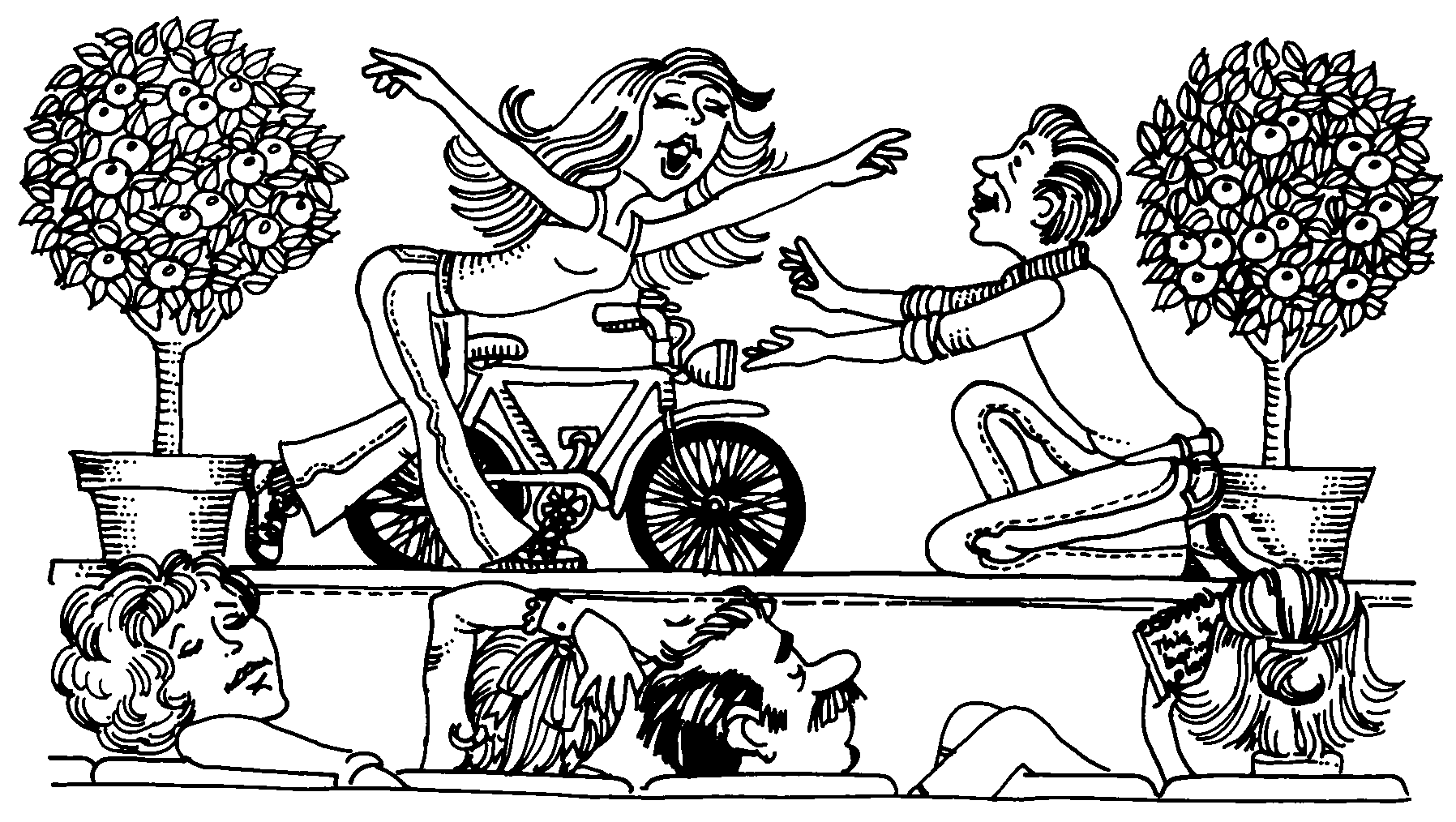| << Chapter < Page | Chapter >> Page > |
Lets look at two very important aspects of language – fact and opinion! We use fact and opinion every day when we speak and write, without even realising it. It is important that we understand the difference between the two. Study the definition below and then we will see if you can distinguish between fact and opinion in an article.
A fact is something that is true.
An opinion is one person’s viewpoint. It may or may not be true.
Drama critic, Sophia Winkle, wrote the play review below, after she had seen a Broadway play. Some of the statements are facts , and some are opinions . Read the article and draw a line under every sentence that states an opinion. There are five such sentences.

Herbert Scooter's play, “The Handlebars on My Bicycle Are Loose”, opened on Broadway last night. It is the first play Mr Scooter has written. It ought to be his last.
The play has five acts and runs for seven and one-half hours. Mr Scooter could have made four plays out of it, but that would have been four times as bad. Fifi LaGlitter, the leading lady, has never appeared on Broadway before. I can understand why, because a bowling ball has more talent than Miss LaGlitter. She missed three entrances and forgot her lines fourteen times. It's too bad she didn't forget her whole part. Unlike me the rest of the people in the audience fell asleep in the middle of the second act. If I had been as smart, I would have gone to sleep, too.
List three facts from the article:
| 1. Leaving the tap dripping is a waste of water. | ||
| 2. Not putting a fire out properly in a picnic spot can cause a fire. | ||
| 3. Bullies are always big boys. | ||
| 4. Littering is bad for the environment. | ||
| 5. Plastic bags are a major cause of South Africa’s littering problem. | ||
| 6. Perlemoen poachers should be locked up in jail for life. | ||
| 7. Poaching takes place in Nature Reserves all around South Africa. | ||
| 8. It is possible to live without electricity. | ||
| 9. Children should not have rights. | ||
| 10. Child labour is against the law. | ||
| 11. Child labour is an abuse of children’s rights. | ||
| 12. We are all proud to be South African. | ||
| 13. South Africa’s constitution is the most liberal in the world. | ||
| 14. Charity organisations should receive more money from the government. | ||
| 15. Some businesses support charities. | ||
| 16. All businesses support charities. |
Write three facts of your own:
Write three opinions of your own:
Educator Assessment Chart:
| Criteria | 1 | 2 | 3 | 4 |
| Distinguishes between fact and opinion | 0 – 4Still not sure | 5 – 8In some contexts only | 9 – 12Well | 13 – 16Extremely clearly |
| Criteria | 1 | 2 | 3 | 4 |
| Accuracy of examples | Poor | Starting to understand | Good | Excellent |
| LO 6 |
| LANGUAGE STRUCTURE AND USE The learner will know and be able to use the sounds, words and grammar of the language to create and interpret texts. |
| We know this when the learner: |
| 6.4 develops own vocabulary. |
| 6.4.2 recognises words which sound the same but are spelled differently; |
| 6.4.3 recognises words which are often confused; |
| 6.4.4 understands between 4 000 and 5 500 common spoken words in context by the end of grade 6. |

Notification Switch
Would you like to follow the 'English first additional language grade 6' conversation and receive update notifications?